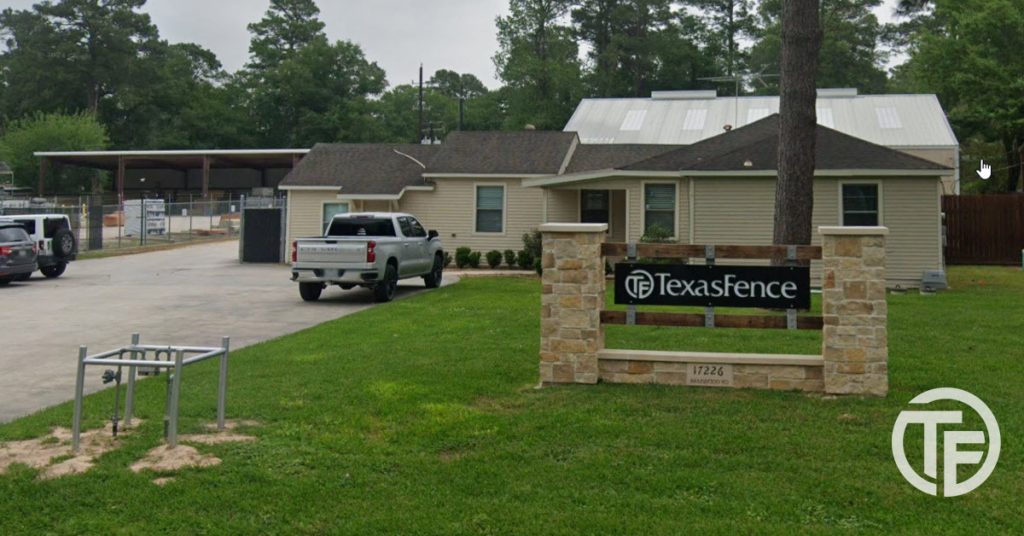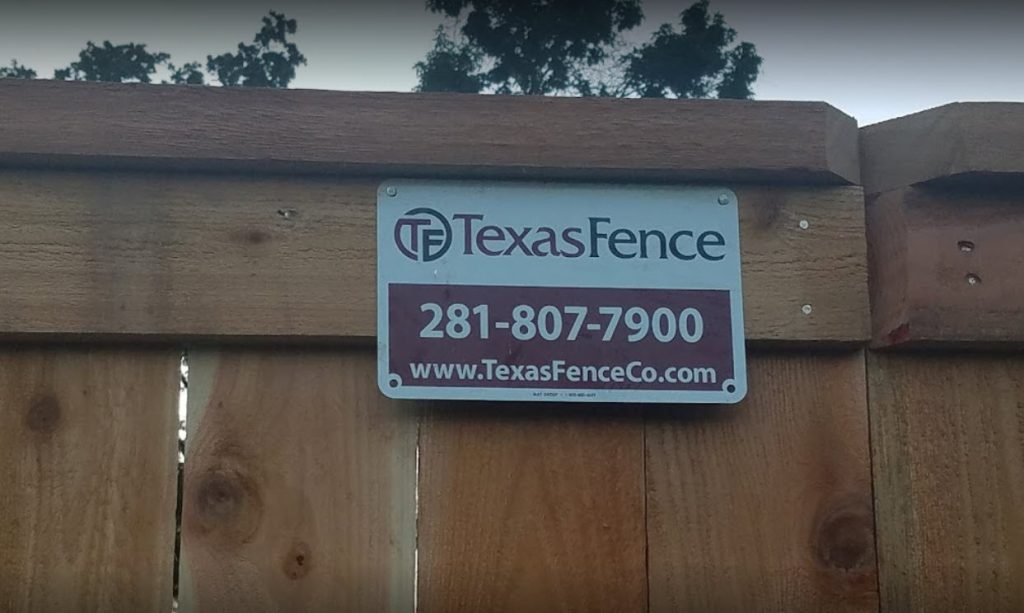Finding the Best Local Fence Company: What to Ask and Expect
When we’re searching for the best local fence company, we’re not just looking for someone to install posts and panels – we’re investing in our property’s security, value, and curb appeal. It’s a decision that impacts our daily lives and our home’s worth for years to come. While it’s tempting to choose the first contractor who provides a reasonable quote, there are critical factors we need to ponder before signing any agreements. Let’s explore the essential questions to ask and red flags to watch for when selecting a fence installation professional.

Key Points
- Verify contractor’s license and insurance coverage directly with providers to ensure they meet state requirements for fence installation.
- Request references from previous clients and review completed projects from the last 2-3 years in your local area.
- Compare material options and get detailed quotes specifying grades, costs, and long-term maintenance requirements for each.
- Review warranty terms and payment structure, ensuring all agreements about deposits, final payments, and service guarantees are written.
- Confirm the contractor’s familiarity with local building codes, permit requirements, and regional installation challenges specific to your area.
Check Licensing and Insurance Coverage
Every legitimate fence contractor should maintain proper licensing and adequate insurance coverage to operate legally in your area. We recommend asking to see their current contractor’s license and verifying it through your state’s licensing board. Their license should specifically cover fence installation work, not just general contracting.
Make sure they carry both general liability insurance and workers’ compensation coverage. General liability protects your property if damage occurs during installation, while workers’ comp covers their crew if injuries happen on your job site. We suggest requesting certificates of insurance and calling the insurance provider to confirm the policies are active.
Don’t hesitate to walk away if a contractor can’t provide proof of proper licensing and insurance – it’s not worth the risk.
Working with licensed professionals ensures you get experienced contractors who understand various fencing options and materials like PVC, vinyl, and ornamental steel.
Read Reviews and References
We’ll want to thoroughly examine the fence company’s portfolio of past project photos to evaluate their craftsmanship and range of completed work. It’s crucial to verify their licenses through your state’s contractor board website to confirm they’re currently authorized to perform fence installations in your area. We recommend contacting 2-3 previous clients from their reference list to inquire about the company’s communication, timelines, and overall quality of work. Asking about adherence to budgets and completion schedules will help ensure you choose a reliable contractor.
Check Past Project Photos
Photos of completed fence projects provide invaluable insights into a contractor’s workmanship and attention to detail. We recommend asking for pictures of both recently completed jobs and installations from several years ago to assess how their work holds up over time. Look for clear, well-lit images that show critical areas like gate installations, corner posts, and junctions between fence sections.
When reviewing a company’s portfolio, we should pay attention to precise post alignment, consistent spacing between pickets, and clean finishes around hardware. Let’s also check if they’ve completed projects similar to what we’re planning – whether it’s a decorative aluminum fence, classic wood privacy fence, or chain-link installation. Quality contractors will proudly showcase their craftsmanship through detailed photos of various angles and installation stages.
Verify Licenses Online
Licensed and insured fence contractors protect both property owners and workers during installations. We can easily verify a company’s credentials through our state’s contractor licensing board website, where we’ll find their license number, status, and any filed complaints or violations.
Let’s look up whether they carry general liability insurance and workers’ compensation coverage. These policies safeguard us if accidents occur on our property during fence installation. We should request current certificates of insurance directly from their provider and verify the coverage amounts meet our state’s minimum requirements.
Don’t skip this step – legitimate fence companies willingly share their licensing information and insurance documentation. If a contractor hesitates or can’t provide these credentials, we need to continue our search for a properly licensed professional.
Contact Previous Clients
After confirming proper licensing and insurance, checking references helps validate a fence contractor’s reputation and workmanship. We recommend requesting at least three references from projects completed within the past year, focusing on installations similar to what you’re planning.
When contacting these previous clients, let’s ask specific questions about their experience: Was the project completed on schedule? Did the contractor maintain a clean worksite? How has the fence held up since installation? Were there any warranty claims, and if so, how were they handled? It’s also worth inquiring about the crew’s professionalism and communication throughout the project.
Don’t forget to check online reviews across multiple platforms like Google, Yelp, and the Better Business Bureau, but remember to look for patterns rather than focusing on isolated negative comments.
Compare Material Quality Options
We’ll need to examine material grades carefully, from economy-grade pine to premium cedar in wood fencing, or from standard aluminum to commercial-grade steel in metal options. Each material grade offers distinct advantages – pressure-treated lumber resists decay while premium vinyl provides maximum weather resistance and minimal maintenance requirements.
When comparing materials, we’ll want to ponder that higher-grade options like wrought iron and cedar typically last 20-30 years, while economy materials might need replacement within 7-10 years. Proper wood sealing and staining can significantly extend the lifespan of wooden fencing materials while enhancing their natural beauty and weather resistance.
Popular Material Grades
Most local fence companies offer multiple material grades to fit different budgets and quality requirements. We typically see three main grades: economy, standard, and premium.
Economy-grade materials, like thinner gauge steel or pressure-treated pine, meet basic needs but may have shorter lifespans. Standard-grade options include mid-weight aluminum, higher-quality vinyl, and select cedar – these balance durability with cost.
Premium grades feature commercial-quality materials like heavy-gauge aluminum, premium cedar or redwood, and virgin vinyl with advanced UV protection. At this tier, we’ll find enhanced features like reinforced posts, thicker pickets, and superior hardware. While premium materials cost more upfront, they often prove more cost-effective long-term due to their extended durability and reduced maintenance needs.
Durability Among Materials
When comparing durability across fence materials, considerable differences emerge between entry-level and premium options. We’ll help you understand how various materials stand up to time and elements, so you can make an informed choice for your property. Higher-grade materials often justify their cost through extended lifespans and reduced maintenance needs.
| Material Type | Expected Lifespan |
|---|---|
| Premium Cedar | 30-40 years |
| Standard Pine | 12-15 years |
| Vinyl Premium | 40-50 years |
| Basic Vinyl | 20-25 years |
Weather resistance varies greatly between grades, with premium options incorporating UV inhibitors, impact modifiers, and superior preservative treatments. While standard pine may require replacement after 15 years, premium cedar can last three decades with proper maintenance. Similarly, high-grade vinyl outperforms basic options by incorporating advanced stabilizers and thicker wall construction.
Get Multiple Written Estimates
Once you’ve identified potential fence contractors, obtaining multiple written estimates is essential for making an informed decision. We recommend getting at least three detailed quotes to compare costs, materials, and project timelines effectively. Each estimate should include itemized breakdowns of material costs, labor charges, and any additional fees for permits or special requirements.
Let’s guarantee each written estimate specifies the exact fencing materials, post spacing, gate hardware, concrete specifications, and installation methods. Watch for contractors who include warranty information, insurance coverage, and lien release terms in their estimates. Don’t hesitate to ask questions if certain line items aren’t clear – reputable contractors will explain every detail.
Consider asking about maintenance costs for different fencing materials, as these expenses can vary significantly from wood sealing to basic vinyl cleaning over time.
Warranty and Service Terms
Understanding warranty coverage represents a critical step in selecting your fence contractor. We recommend getting all warranty terms in writing, including both materials and labor coverage periods. Most reputable companies offer multi-year warranties on workmanship, while material warranties often extend 15-25 years depending on the fence type.
Let’s guarantee your warranty specifies how the company handles repairs, replacements, and maintenance issues. Look for clear terms about response times for service calls and whether there’s a cost for warranty-related visits. We’ve found that quality fence contractors typically include provisions for post settling, gate adjustments, and hardware replacements within the first year.
Watch for exclusions and limitations, particularly regarding environmental damage, improper use, or unauthorized modifications that could void your coverage.
Professional installation ensures proper mounting and stability that prevents costly repairs over the lifetime of your fence.
Project Timeline and Scheduling
How long your fence installation takes can drastically impact your property and daily routine. That’s why we recommend discussing timeline expectations upfront with your contractor. Professional fence companies should provide clear scheduling details and keep you informed throughout the process.
When evaluating project timelines, make sure your contractor addresses:
- Pre-installation steps like permit acquisition, utility marking, and material delivery windows (typically 1-2 weeks)
- The actual installation duration based on fence type, length, and terrain complexity (usually 2-5 days for residential projects)
- Potential weather delays, material shortages, or other factors that could affect completion dates
We suggest getting these details in writing and requesting regular progress updates. Most reputable companies will also provide a project manager who’ll serve as your main point of contact throughout the installation. Companies like Texas Fence can complete most residential fence installations in just one day through efficient workflow and meticulous planning.
Payment Terms and Structure
After finalizing your project timeline, the next key consideration is the payment structure for your fence installation. Most reputable fence companies require a deposit of 25-50% to secure materials and labor, with the remaining balance due upon completion. We recommend avoiding contractors who demand full payment upfront, as this can be a red flag.
Let’s guarantee your payment agreement includes clear terms about when payments are due, accepted payment methods, and any applicable warranties or guarantees. If you’re financing the project, many fence companies partner with lending institutions to offer payment plans. Ask about early payment discounts or seasonal promotions that could reduce your overall cost. Remember to get all payment terms in writing as part of your formal contract before any work begins.
Working with licensed and insured contractors provides additional protection for your investment and peace of mind throughout the installation process.
Local Experience and Expertise
A fence company’s local experience serves as one of the most reliable indicators of their expertise and reliability. We recommend looking for contractors who’ve established deep roots in your community and understand your area’s unique soil conditions, permit requirements, and weather challenges.
When evaluating a fence company’s local expertise, consider these pivotal factors:
- Length of time serving your specific geographic area, including verifiable completed projects within your neighborhood
- Familiarity with local building codes, HOA regulations, and municipality-specific permitting processes
- Knowledge of regional factors like frost lines, soil composition, and typical property boundary issues
Look for companies that can provide local references and showcase their involvement in community projects. Their understanding of area-specific challenges will directly impact your fence’s longevity and installation quality.
Leading fence companies like Texas Fence demonstrate their local expertise through shared property billing services that ensure fair payment arrangements between neighboring property owners.

Frequently Asked Questions to find Best Local Fence Company
Do I Need a Permit to Install a Fence on My Property?
We’ll need to check our local building codes, as most cities require fence permits. Let’s contact our municipal planning office before starting, since regulations vary by location and fence type.
How Deep Should Fence Posts Be Installed in My Area?
We’ll need to check your local building codes, but typically fence posts should be buried 1/3 their total length, usually 2-3 feet deep, with extra depth in frost-prone areas.
Who Is Responsible for Maintaining the Fence Between Neighboring Properties?
We typically share fence maintenance responsibility with neighbors who benefit from the shared boundary, though local laws and property deeds often specify exact obligations for repairs and upkeep between adjoining properties.
Will the Fence Company Remove My Old Fence Before Installation?
We’ll typically remove your old fence as part of our installation service, but you should confirm this during your estimate. Most companies include demolition and disposal in their project pricing.
Can the Fence Company Work Around Existing Landscaping and Utilities?
We’ll work carefully around your landscaping and utilities, marking underground lines through 811 services. Our crews use specialized techniques to protect plants and infrastructure while installing your new fence properly.
Takeaway
We’ve covered essential steps for selecting a reliable fence contractor, from verifying credentials to analyzing material options. By thoroughly vetting potential companies, examining their track record, and securing detailed agreements, we’re setting ourselves up for a successful fence installation. Let’s remember that investing time in proper research and documentation now will guarantee we’re working with qualified professionals who’ll deliver lasting results that meet our specific needs.








